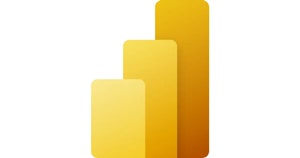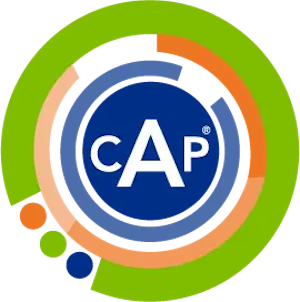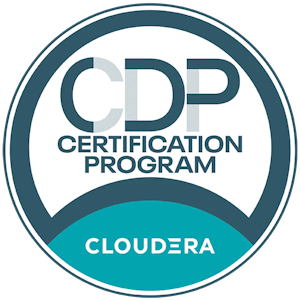As influential companies utilize big data analytics to remain competitive in the market, they continue to call on business analytics professionals to help them turn the results of analysis into actionable insights. No surprise, then, that the US Bureau of Labor Statistics projects headcount in business analytics to grow by anywhere from 11% to 23% over the next decade. A testament to their current relevance, business analysts already earn well above the $58,260 the average American earned in 2021, with a median salary of almost $80,000 according to Salary.com.
If you’re someone who wants to become a business analyst, data analyst, or business intelligence analyst (or if you’re one of the vast majority of professionals who McKinsey believes will need to exercise their data literacy on a day-to-day basis by 2025), a business analytics certification or a business analytics certificate program might be just what you’re looking for. In this guide, we’ll break down the key business analytic skills, different use-cases for certifications and certificates, and give you some of our picks of programs we think can help you level-up your career.
What is business analytics?
According to industry journal CIO, business analytics is
“the practical application of statistical analysis and technologies on business data to identify trends and predict business outcomes.”
Within the larger field of business analytics, business analysts extract insights from data in four main analytics subfields:
Descriptive analytics, which focuses on what events have occurred in the past, such as how sales numbers compare year-over-year
Diagnostic analytics, which focuses on why certain events have occurred in the past, such as what conditions might be contributing to production inefficiencies
Predictive analytics, which focuses on what events might happen in the future, such as predicting consumer behaviors or market size
Prescriptive analytics, which focuses on recommending or automating actions a business should take, such as automating supply chain management
You can learn more about business analytics in our long-form piece. In the next section, we’ll dive into the skills necessary to succeed as a business analyst.
What skill set is required to work in business analytics?
Whether you’re a business analyst, a business intelligence analyst, or a data analyst, business analytics professionals share an interdisciplinary skill set comprising computer science, statistical analysis, data management, and data visualization skills, along with business acumen and soft skills.
Computer science
Professionals in the field of business analytics should have basic proficiency in running Excel formulas and scripting in SQL. To conduct more complex analytics, they must also possess the skills to write machine learning algorithms and train models using programming languages such as Python or R. For these advanced analytics, they should have a strong understanding of machine learning and deep learning libraries like Pandas and Tensorflow.
Statistical analysis
Statistical techniques like regression analysis, optimization, and cohort analysis are essential for business analytics. You can find full descriptions of these techniques and more, along with examples of each, in our data analytics explainer.
Data management
Business analytics professionals must be competent across the entire data pipeline, from data mining, to data wrangling and data cleansing, to data processing, to data storage.
Data visualization
Data visualization skills are crucial for business analytics professionals to be able to compellingly communicate insights to stakeholders. Tableau is a popular business analytics tool for creating graphs and other visualizations.
Business fundamentals
Being able to effectively communicate insights to stakeholders through data visualization is also a critical skill for professionals in business analytics. Tableau is a frequently used business analytics tool that enables the creation of compelling dashboards and other types of visualizations.
Soft skills
Crucial soft skills for business analytics include communication, critical thinking, project management, data storytelling, and, later on in the business analytics career path, leadership.
Now that we’ve covered the core skills for business analytics, we’ll move on to how certifications and certificates can help you build out your skill set and advertise it to potential employers.
What’s the difference between a business analyst certification and a business analytics certificate?
Despite their strikingly similar names, certifications and certifications differ in purpose and requirement. Here’s how:
Business analyst certification
A business analyst certification is intended to attest to mastery of a comprehensive business analytics skill set, one or several particular business analysis skills, software, or one area of business analytics such as customer analytics or agile analysis. A business analyst or business analytics certification is usually awarded after successful completion of an exam and may or may not be preceded by some sort of educational programming. These certification exams usually cost several hundred dollars and can be offered at testing sites or in an online proctored version.
USE: Business analyst certifications are a great way to demonstrate your skills and experience to potential employers, though they generally aren’t the first stop on your business analytics journey. Instead, it is best to pursue them after you have already completed another educational program such as a business analysis course or have been working as a business analyst for some time.
Business analytics certificate
A business analytics or business analysis certificate is awarded upon successful completion of a business analysis course that covers some or all of the skills needed for business analytics. Certificate programs vary widely in their modality and price. While some feature live faculty instruction and interaction between students, others are entirely self-paced and asynchronous. The cost of a business analytics certificate program generally depends on this modality and the reputation of the granting institution and can range from free to several thousand dollars.
USE: Business analytics certificate programs are great tools for those looking to upskill to advance their existing business analyst careers, transition into business analytics from a different field, or simply explore a business analytics career in a relatively low-risk environment.
Certification, certificate, or…degree?
If you’re looking into a career in business analytics, another option to keep in mind is a two- or four-year undergraduate or graduate degree. While these are substantially more expensive and time-intensive than a certificate, they have traditionally been thought of as the surest way to a high-paying professional career in a technical field. They can also unlock future opportunities in areas like data science, consulting, or even data engineering. Improving the financial calculus for many these days is the increasing number of online degrees, and particularly online master’s programs, on offer from universities and colleges.
To learn more about bachelor’s and master’s degrees in business analytics, see the following guides:
If you are looking for a more intensive course of study than that offered by a business analytics certificate but aren’t ready to devote the time and money necessary for a traditional degree, you should also check out our guide to data analytics bootcamps.







